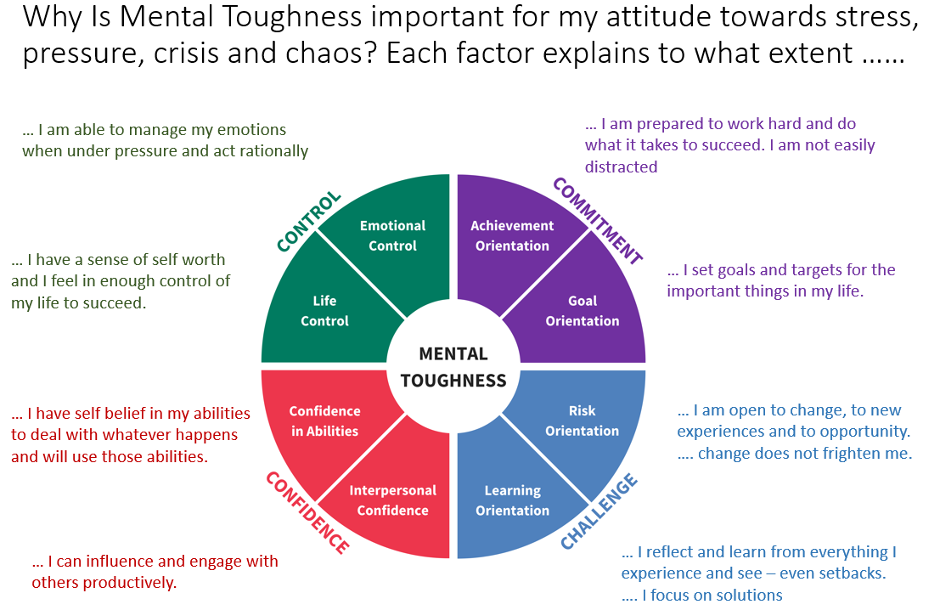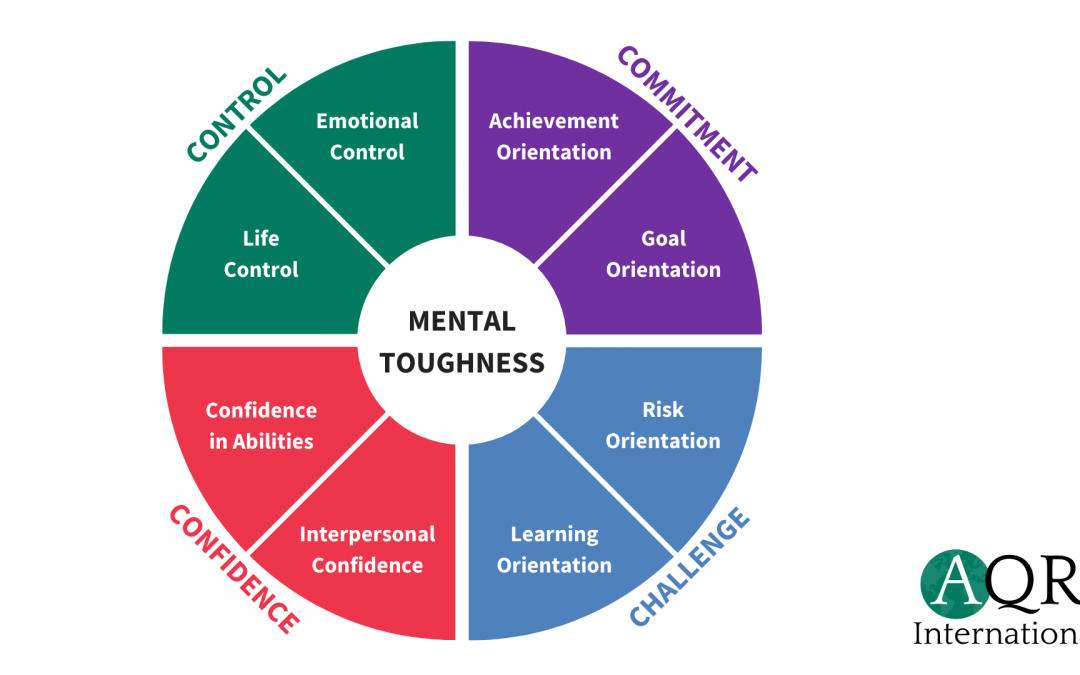These two phrases are often used interchangeably – especially in the press but also by people development professionals.
However, we, at AQR international, tend to be careful about how we describe Mental Toughness for some important reasons.
Firstly, the opposite of Mental Toughness is Mental Sensitivity. The opposite of Mental Strength is Mental Weakness. These are not the same thing.
Whilst the evidence suggests that it is generally the case that the Mentally Tough enjoy (if that’s the right word) an advantage – they tend to achieve more, enjoy better well-being, are more positive and even earn more – and indicates that the Mentally Sensitive find the road through life and work more challenging – they can feel every bump on the road with the consequences that brings with it, there is a more nuanced perspective to be adopted by learning and development professionals.
These studies are generally observational. They look at “what is”. In other words, they will assess the mental toughness or sensitivity of an individual and correlate it with measures of performance, well-being, agility, mood., aspirations etc.
What they may not do, and often don’t do, is introduce interventions or control for other factors. The most important of these is self-awareness about one’s level of mental toughness.
So, we can also see that there are Mentally Sensitive people who are successful, generally manage their lives well manage and do achieve great things and, equally, there are Mentally Tough individuals who fail and experience frustration.
It can be as important to understand this as it is to understand Mental Toughness in the first place.
This helps us to deal with a common fault in people development practice – labelling what we see as “good” or bad”. Mental Toughness and Mental Sensitivity are not, in themselves, “good” or “bad”. We are who we are and the real challenge is to “be the best version of ourselves that we can be.
In some settings, Mental Toughness can bring an advantage. But it can also be the case that a Mentally Sensitive individual can be effective when they know themselves and know how to manage any potential consequences of their sensitivity.
The key is self-awareness and reflection. Whether you are Mentally Tough or Mentally Sensitive, being self-aware about who you are and why you think about things in a particular way is the key to being able to do something about your qualities and your intellectual assets.
Reflection is equally important and follows on from self-awareness. Once you understand something about yourself – why you are responding to events the way you do, the next question is likely to be “do I need to do something about this?”. There is no right or wrong answer but it is important to ask the question.
Some will decide that there is a benefit in some form of development and perhaps a deliberate change. Others might take the view that they are comfortable with this understanding and their abilities to cope with potential issues.
There is another equally important reason. There are potential strengths and weaknesses right across the Mental Toughness spectrum. It might seem fairly obvious that the Mentally Sensitive might have disadvantages and have weaknesses in terms of what they might seek to achieve, studies are also indicating that they also possess qualities we would describe as strengths.
They are often more aware of potential overload and burnout which can be valuable in team settings. They can be more cooperative – they tend to have lower levels of goal orientation which means they can be effective followers – it’s less likely that there is a misalignment of their goals with yours if you are a leader. And they are often creative – because they see and think about the world from a different perspective and bring that to their work. Think of artists and musicians!
Similarly, the Mentally Tough can have potential weaknesses. A high level of Control can mean they think “I can do it, why can’t you?” which is sometimes not very helpful. With the Commitment element, they can overcommit and burn out without recognising the warning signs of fatigue.
When it comes to Challenge, they can do this excessively, eventually taking too many risks and sometimes enticed by the next “new” thing before they sort out the thing they are working on. And with the Confidence element, they can be overconfident about their Abilities. Where they are Interpersonally Confident, they can drown out the contributions of others – in extreme case emerging as “verbal bullies”.
It might seem a paradox but Mental Toughness awareness is as important for the Mentally Tough as it is for the Mentally Sensitive. Much of our work is with senior leaders who have reached a position of influence – often by dint of their Mental Toughness – who then find they are not as effective as they would like to be because their Mental Toughness can carry disadvantage e.g. particularly in engaging with others.
So, self-awareness, reflection and focused development are important for all.
Finally, as our understanding of Mental Toughness has expanded to the 8-factor concept, we are increasingly aware that it is rarely useful to label anyone as mentally tough or mentally sensitive. What we can often see is that someone’s profile might indicate that they are generally more mentally tough than the norm or average. However, when we look at the 8 factors it is very often the case that they may still be mentally sensitive in terms of one or two of the factors. It is likely these factors that create issues for them.
Similarly, for someone whose overall profile indicates they may be more mentally sensitive, they too might be mentally tough in terms of one or more factors.

So are these people mentally tough or mentally sensitive? The answer is neither. They are both a bit of both. This is where much of the power of the 8-factor concept lies. We can differentiate between people and help to address their specific needs and issues.
In fact, the 8-factor concept can produce around 40,000 different combinations of profile. This is beginning to contribute to the “holy grail” of development – understanding individual differences and understanding how to optimise this.
The world isn’t black and white, there is a multitude of shades and differences when we look at people. Typing instruments and concepts are popular and can serve a purpose. But they are only of very limited value.
The Mental Toughness concept – a key personality trait – and the Mental Toughness Questionnaires make an important contribution to understanding and developing people whether it’s ourselves or it is others at a level that works and is specific to them.
Doug Strycharczyk
CEO, AQR International.
For more information about Mental Toughness and how individuals and organisations and be trained and licensed to use this valuable concept please go to headoffice@aqr.co.uk.
If your enquiry is outside of the UK we may direct you to one of our global partners. Alternatively, you too may be interested in becoming a partner. Again, make your enquiry through headoffice@aqr.co.uk


